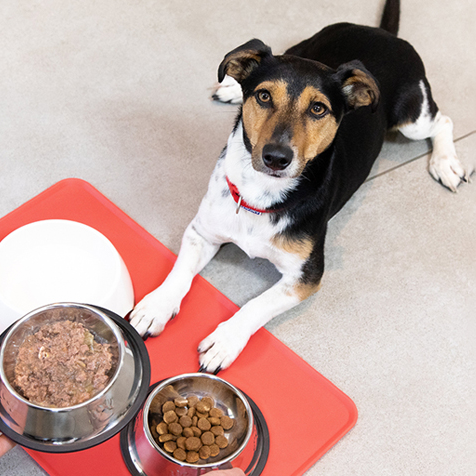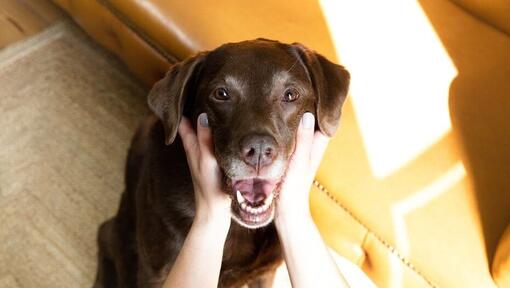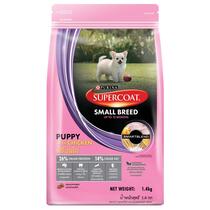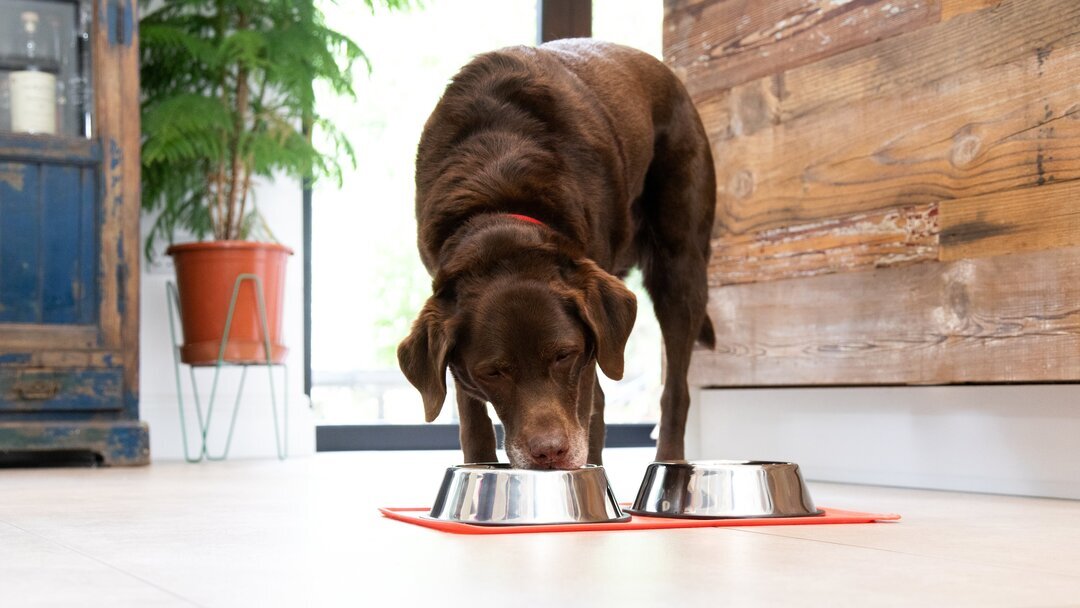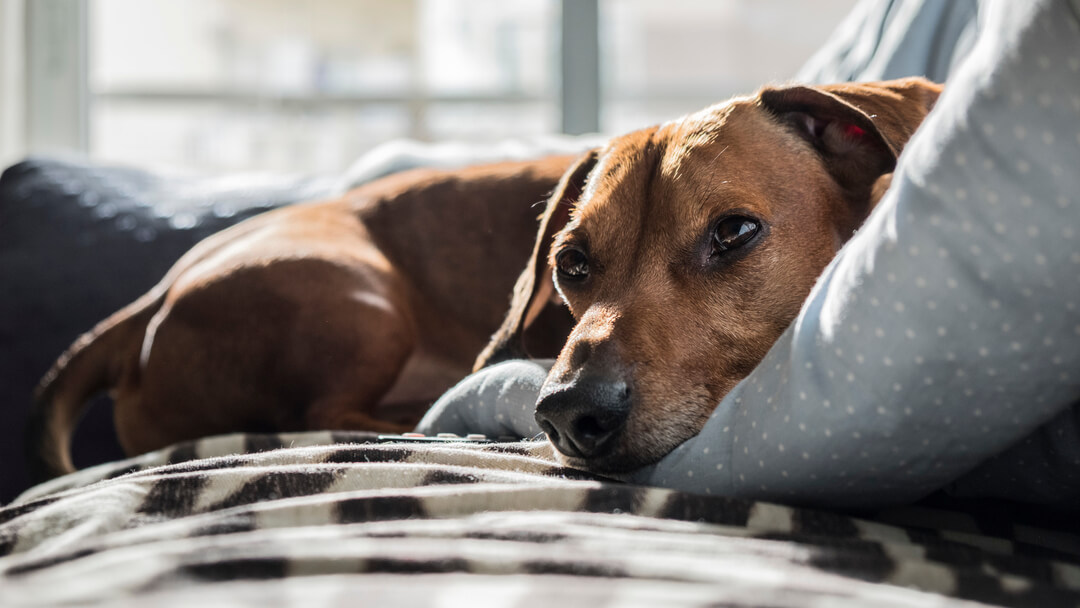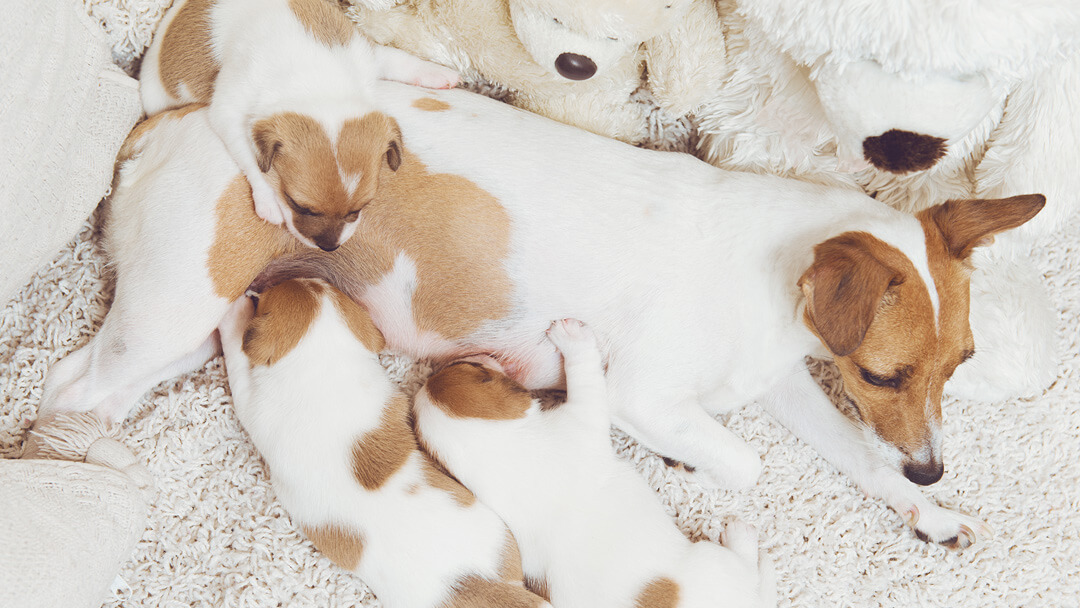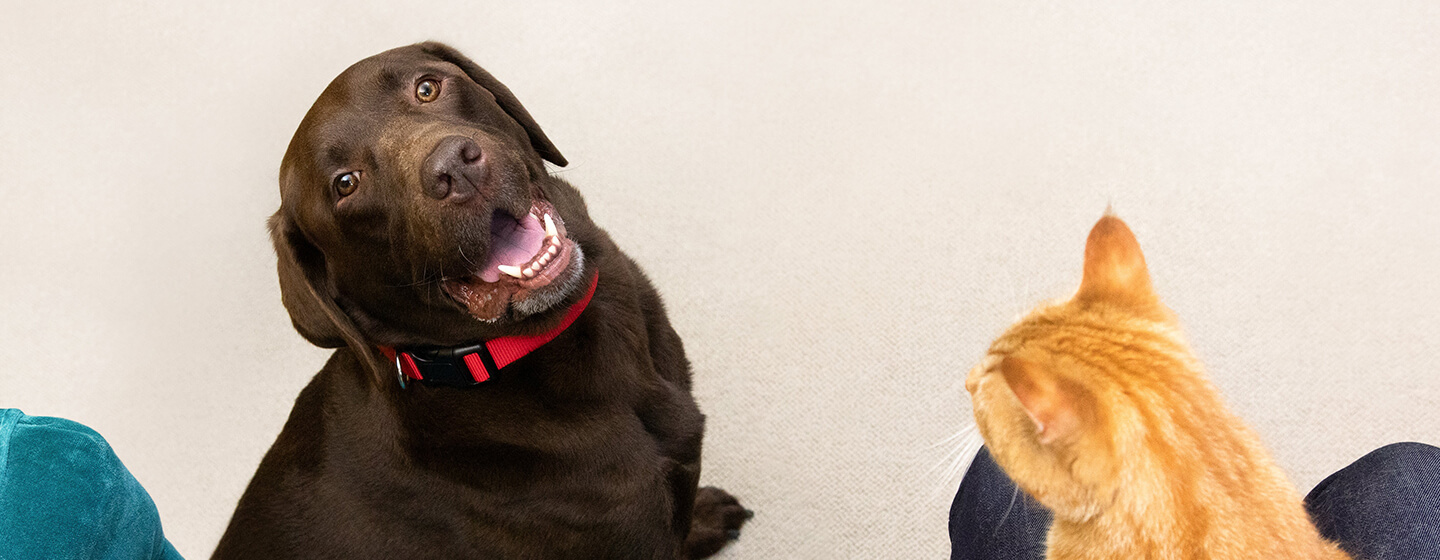
Welcoming the pitter-patter of tiny paws into your home is an exciting time for you and your dog. Find out how to spot the signs of a pregnant dog and how long dogs are pregnant here.
Whether you’re planning your pet’s pregnancy or you think your dog is already expecting, the Purina PetCare team will guide you through the signs. Being prepared will help to make your dog’s pregnancy as simple and stress-free as possible for her – and you.
When can a dog get pregnant?
Dogs are able to get pregnant when they come into season, which happens about once every eight months. This fertile period is also known as ‘being in heat’, and lasts for up to three weeks.
As well as getting pregnant during this time, your dog may get into altercations with males if they don't feel quite ready to mate. Walking them on a lead during their season can help your dog avoid any scuffles and, if you don’t want a male to mate with them, their amorous advances.
As pregnancy can be expensive and emotional for both you and your dog, breeding is often best left to the experts. If you’d like to avoid a pet pregnancy, you may want to consider getting your dog neutered. See our neutering your dog page for more information.
How long are dogs pregnant?
Dog pregnancy usually lasts between 61 and 65 days, but you may not notice any obvious physical changes in your dog until they are already well into their term. There’s no such thing as an at-home dog pregnancy test, so you’ll have to look out for common dog pregnancy signs yourself.
"Expecting puppies is exciting, but can be a strain on your dog. The Purina Pet Care Team make sure you have all the information you need to help keep mum healthy during this time."
What are the signs of dog pregnancy?
If your dog is pregnant, you may notice the following signs.
- A slight mucus discharge may occur around one month after mating.
- Her teats may become more prominent in colour and size around 30 days after mating, and you may also see them produce a semi-clear fluid.
- Similar to our “morning sickness”, your dog may vomit a little in the early stages of pregnancy. If this continues, or you have any concerns, speak to your vet.
- She will start to gain weight from around day 35 of her pregnancy, which will gradually increase by up to 50% above normal.
- You should be able to notice her swollen tummy from around day 40, although first-time mums, and bitches carrying a small litter, may not show as much.
- She may act a little quieter than usual, or her appetite might drop. These signs can also indicate a problem, so speak to your vet if you’re concerned.
- Your pregnant dog’s appetite will increase in the second half of pregnancy, so be prepared to change her diet accordingly.
Dog pregnancy diagnosis
Your vet can confirm a pregnancy with either a dog pregnancy test, which measures her hormone levels, from days 21-25 of her term, or by ultrasound from day 20-22. From around day 30 your vet will be able to carry out a physical examination to count how many puppies your dog is having. This may not always be accurate, so be aware that you could have more puppies on the way than you thought!
What to do when your dog goes into labour
Although your dog should be able to handle pregnancy and labour herself, being on stand-by to offer soothing words can put them at ease, and also allow you to step in should anything unexpected happen. Your pregnant dog will give you plenty of hints to let you know their labour is beginning and the pups are on their way. But if you want to find out more, read our guide to things to look out for during dog labour.
You may notice your bitch looking for somewhere quiet to give birth towards the end of her pregnancy. You can help her by creating a ‘nest’ in a secluded, warm area. Read tips for a healthy pregnancy for more advice on caring for your pregnant bitch.
In most cases, dogs deliver puppies smoothly and you shouldn’t have to interfere. However some signs, such as discoloured discharge or mum straining without producing pups, could suggest complications. If you notice either of these or have any other concerns, contact your vet. See our guide on dog labour and giving birth, next.



